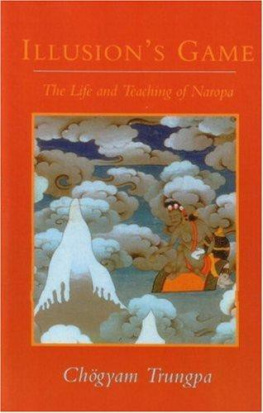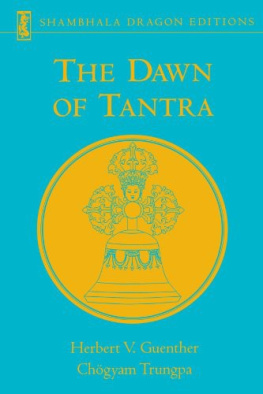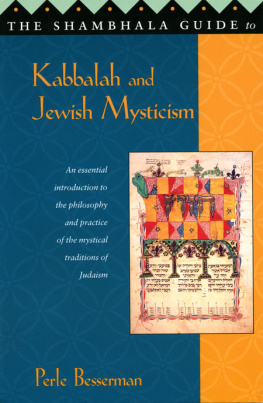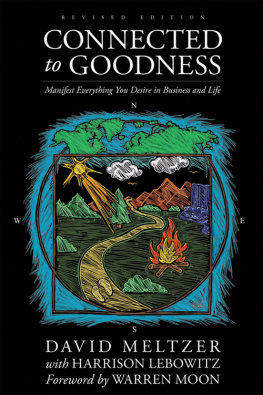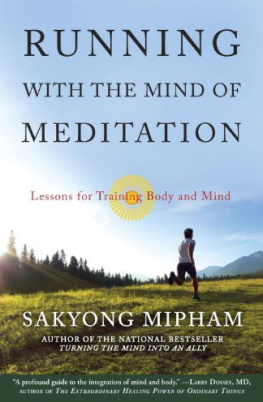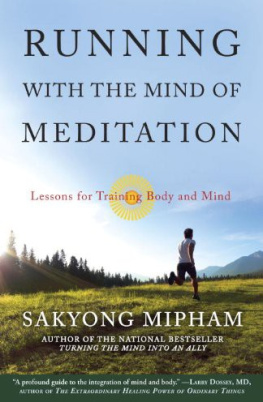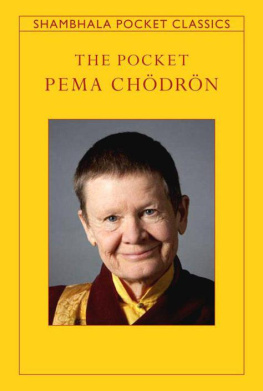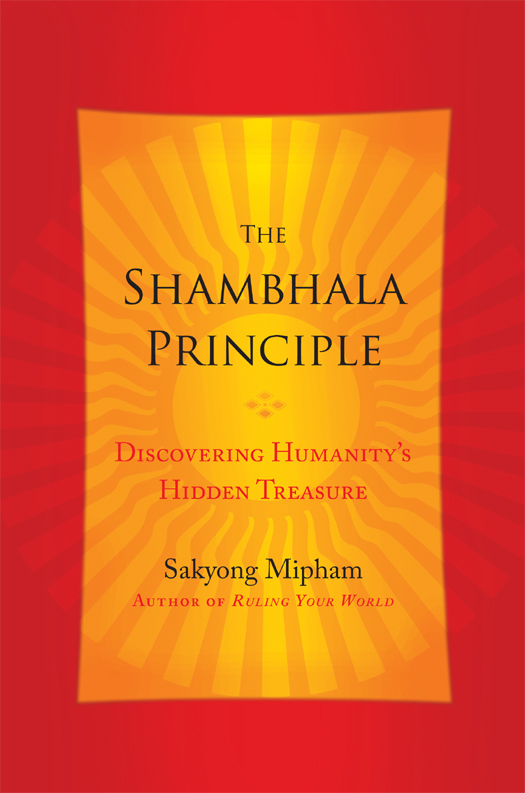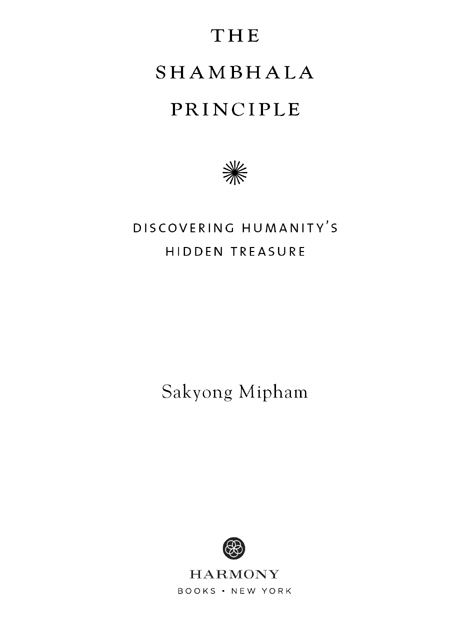Copyright 2013 by Mipham J. Mukpo
All rights reserved.
Published in the United States by Harmony Books, an imprint of the
Crown Publishing Group, a division of Random House, Inc., New York.
www.crownpublishing.com
Harmony Books and colophon are registered trademarks of Random House, Inc.
Library of Congress Cataloging-in-Publication Data is available upon request.
eISBN: 978-0-7704-3744-2
Jacket design by Laura Duffy
v3.1
To Humanity
contents

prologue

We humans have come to a crossroads in our history: We can either destroy the world or create a good future. Even climatically, the balance is shifting to dramatically change the face of the earth. Our ecosystem is in a precarious and fragile state, and our future depends on our actions as a species. At this time, many of us feel overwhelmed by the day-to-day. We dont have the time or energy to contemplate personal or social principles, and we may feel helpless in terms of shifting the future. How we move forward cannot depend on one spiritual tradition, economy, or political system, but rather should depend on who we feel we are, both personally and socially. What is the nature of humans and our society? In this light, human nature is the most important global issue.
The Shambhala Principle centers around a profound transmission, a nonverbal transference of wisdom: Humanity and society are basically good. I received this wisdom from my father, Chgyam Trungpa Rinpoche, who brought the Shambhala principle to our modern world. The principle of basic goodness is not particularly religious or secular. It is about how humanity at the core is complete, good, and worthy. If we can feel confident in our goodness, it will illuminate our life and society.
This simple principle touches the inseparability of personal and social transformation: While it is true that our minds collectively shape our society, it is also true that our society shapes our minds. As our daily activities further express confidence, basic goodness can begin to affect our homes, workplaces, hospitals, and schools, extending all the way to our economic and political systems.
In this book I recollect my own experiencespiritual and hereditaryin presenting themes that might help shift our species to a bright and successful future. I feel we must awaken and have confidence in our own worthiness to be here and enrich this earth with our treasure. Yet it is challenging. Can experiencing and trusting our goodnessand that of societyalter the nature of our reality? If we all tried it, what kind of revolution would we see?
The Shambhala Principle is a reflection on my own journey, and particularly on my relationship with my father. It is based on a series of very simple dialogues during our time together in this life, regarding themes that surround humanity and society. These exchanges began to shape my understanding of profound, meaningful questions and answers about basic goodness, bravery, and creating enlightened society. Most of these dialogues did not happen in a formal settingwe would be having dinner, driving in a car, or simply sitting together for many hours in silence, punctuated only by a few words of exchange. Since the relationship with my father had many facetsfather and son, teacher and student, friend and allythese bits of wisdom did not always seem particularly serious or dramatic. At times, his comments would be accompanied by a joke or a smile.
Dialogue has long existed in ancient Greece and Asia as a way to transfer wisdom and culture. It is one of the most potent ways in which we humans learn. Using a simple exchange, a culture is being transmitted. In the case of my father, he was constantly transmitting the culture of basic goodness and good human society. Building The Shambhala Principle around our dialogues was a way for me to share my journey, an experience of coming to understand these themes. It is my hope that it will inspire others to contemplate them. Since we are living in a time when we are continuously inundated with different views, it is hard to know what is real and important. It is a time when we have to self-reflect in order to see what is meaningful.
The Shambhala Principle invites the reader to join me in this contemplation. Underneath the day-to-day stress, how does it feel to be human? Is there natural goodness, kindness, and strength? At this crossroads, how humanity views itself at some deep level is going to make or break the situation. Can we make the time for such a contemplation, individually and collectively? The simple act of self-reflection has the power to bring us into a more spacious environment. Out of that space, care arises naturally. As more of us feel our goodness, the future of humanity and our planet will shift.
Basic goodness can be expressed in all aspects of life. In this light, I reflect on how realizing basic goodness might affect the economy, health, and education. I do this in order to initiate a dialogue about how basic goodness can be applied to society as a whole. In this way, dialogue becomes the method of creating society through exchange, opening new pathways for exploration and development. I hope these pathways lead experts in various fields to advance this discussion.
Never before has there been a time when reflection on human nature is so important, particularly because of the power of technology. Misused, technology can isolate us, numbing our social and human tendencies while keeping us continuously occupied. Used affirmatively, it can be a powerful vehicle for allowing each of us to participate in the global community of people who wish to shift the destiny of our planet.
I am delighted to offer this guidance for the future. It is contained in a question, a search, a discovery, and a statement about life, all reflected in conversations with my father, whose memory I wish to invoke. An undaunted social visionary, he represents the spirit of the Shambhala principle: manifesting bravery from the ground of our own goodness. This book is not intended to be a detailed exposition on the teachings of Shambhala or the Buddhist philosophy, or a presentation of Western thought or history. Rather, The Shambhala Principle is an attempt to contextualize and bring to light penetrating insights that my father expressed. Because his life spanned both ancient and modern, East and West, I try to reference his comments not only using traditional sources within my own culture, but correlating it with Western history and thought. Even though there are differences and discrepancies between the many philosophical systems, the majority of them surround the basic themes of human nature and the nature of society.
I have organized the book along the lines of feeling, being, and touching. We can hear logics and theories, but ultimately change and growth occur when we are touched at a human levelwhen we personally feel and experience something. The societal level is no different. We can be well aware of climate change and overpopulation, but what moves us is direct experience. This is why feeling our own nature, in a direct way, is so potent.


